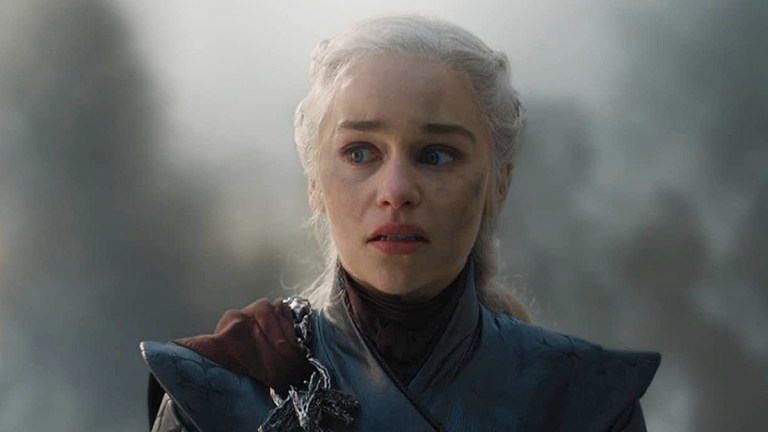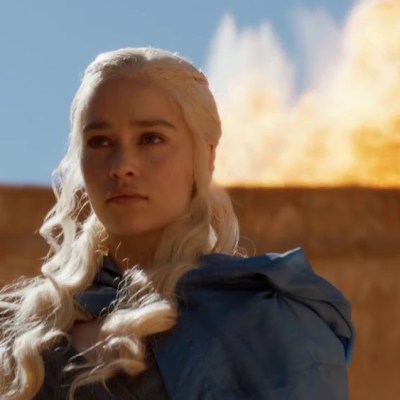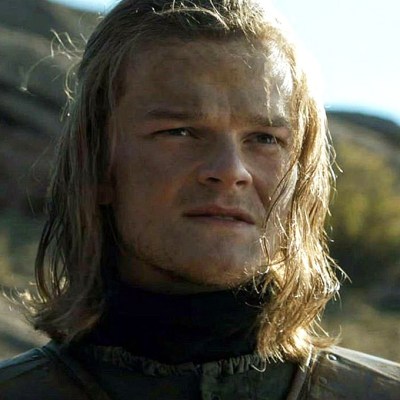Emilia Clarke Admits Disappointment in Game of Thrones Ending
Game of Thrones star Emilia Clarke seems to echo the sentiments of many over the series finale and the fate of Daenerys Targaryen.

Game of Thrones’ divisive series finale is nearly a year old now, having premiered—ten months ago to the day—on May 19, 2019. As sobering as that may be in a “time flies” kind of way, it has allowed everyone to objectively reflect on things. Indeed, now that the smoke and ash has cleared from our proverbial King’s Landing, star Emilia Clarke—whose character, Daenerys Targaryen, underwent a rapidly radical trajectory turn—is admitting her disappointment in not only her character’s fate, but the final season’s overall approach.
While more definitive judgments on HBO’s Game of Thrones will likely be left to posterity, it has been long enough for Clarke—now free from the show’s publicity process—to offer her feelings about the finale in a recent interview for Sunday’s edition of U.K. paper The Times, brandishing the candor befitting of the Mother of Dragons… at least before she suddenly turned into a genocidal despot and sudden scourge of the Seven Kingdoms who had to be put down by Kit Harington’s Jon Snow. As she laments:
“Yeah, I felt for her. I really felt for her. And yeah, was I annoyed that Jon Snow didn’t have to deal with something? He got away with murder — literally.”
As she further explains on initially keeping those opinions to herself:
“I knew how I felt [about the ending] when I first read it, and I tried, at every turn, not to consider too much what other people might say,” Clarke continued, “But I did always consider what the fans might think — because we did it for them, and they were the ones who made us successful, so it’s just polite, isn’t it?”
It’s a rather abrupt divergence from her contemporaneous comments, in which she defended the story direction, pointing to the idea that it was consistent with the more harsh forms of vengeance Daenerys delivered upon her enemies; acts that range from crucifixion, burning them alive to imprisoning them in a dark sealed room for eternity. Yet, despite the harshness of her actions, there was at least some sense of just deserts being delivered, at least when viewed through the show’s quasi-medieval lens.
In a heartfelt confession, she admits to being upset about the series not giving Daenerys a “happy ending.” The notion is made clear when considering how anticlimactic it was to her arc, having spent eight seasons rising from virtual slavery and exploitation to achieving agency in her exiled royal house’s claim to the Iron Throne, eventually becoming a benevolent Queen in the East who intended to strike at injustice in the Seven Kingdoms with the cudgel of a massive army and three dragons. The endpoint of said arc, however, was to give in to a seemingly inexplicable bloodlust in the face of tragedies and setbacks that ultimately led her to going from King’s Landing’s prospective savior to its fire-and-blood-brandishing destructor in a manner akin to the old ways she once eschewed of her royal family’s house.
Another major point of contention held by detractors of Game of Thrones’ final frame was its rushed nature, which was directly attributed to its abbreviated six-episode format. With much of the episodic sextet devoted to necessary climactic battles, critical context—and in some instances, crucial dialogue—took a backseat to spectacle, resulting in some of the head-scratching character turns like Daenerys’s razing of the kingdom she once sought to rule with beneficence. As she points out:
“It was all about the set pieces. I think the sensational nature of the show was, possibly, given a huge amount of airtime because that’s what makes sense.” As she adds of the abbreviated season, “We could have spun it out for a little longer.”
Of course, Clarke isn’t completely throwing shade on the series platform that elevated her from unknown to A-list status, maintaining that Game of Thrones was “a gift” for her as an actress, something for which she will always be grateful. Yet, the often-controversial endings to the more closely analyzed genre TV shows in history (paging Lost fans,) tend to undergo fluctuations when it comes to how they are viewed. Thus, it’s possible (emphasis on “possible,”) that Clarke’s own feelings on Daenerys’s dark side turn may evolve over the following years.

